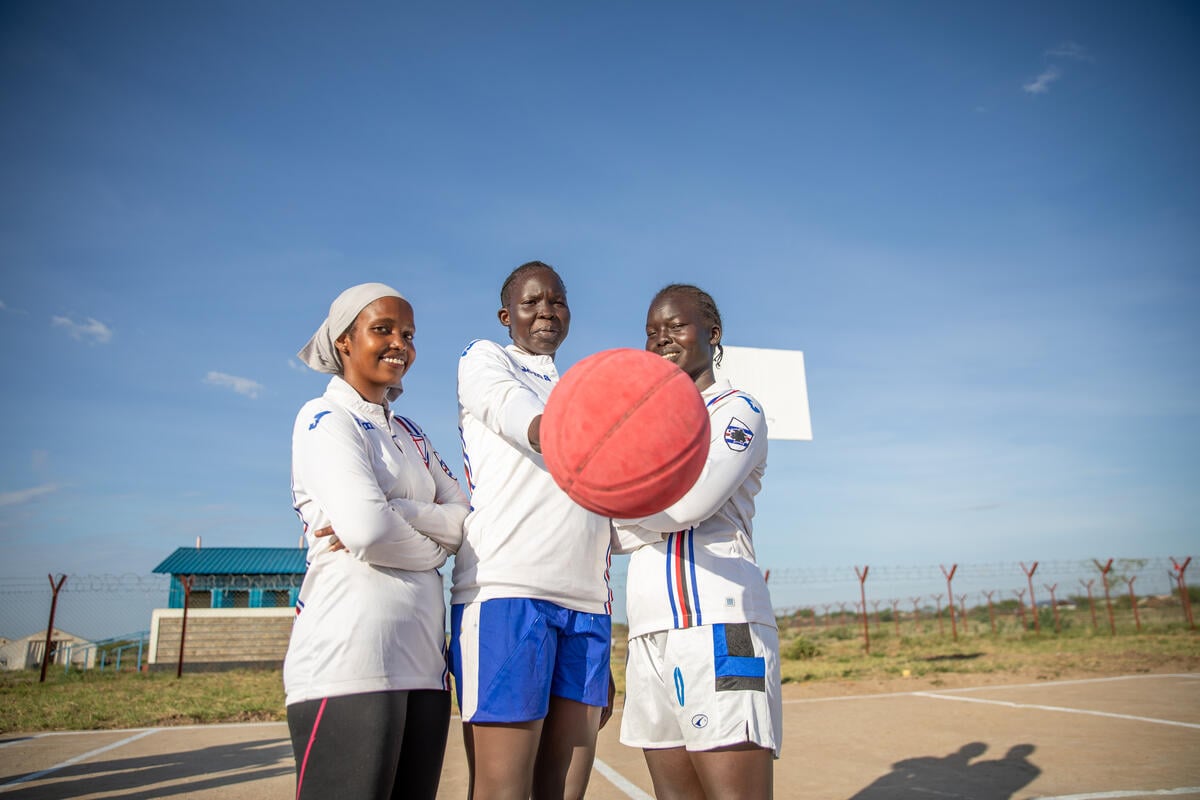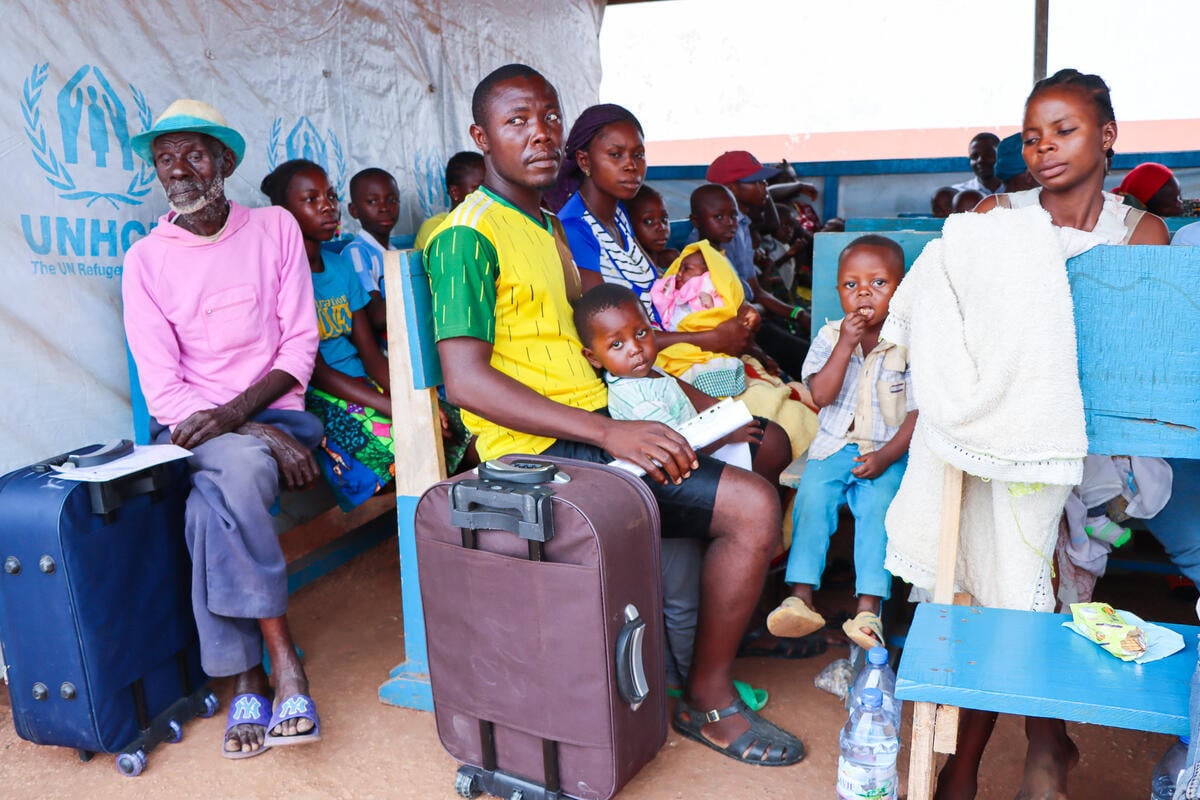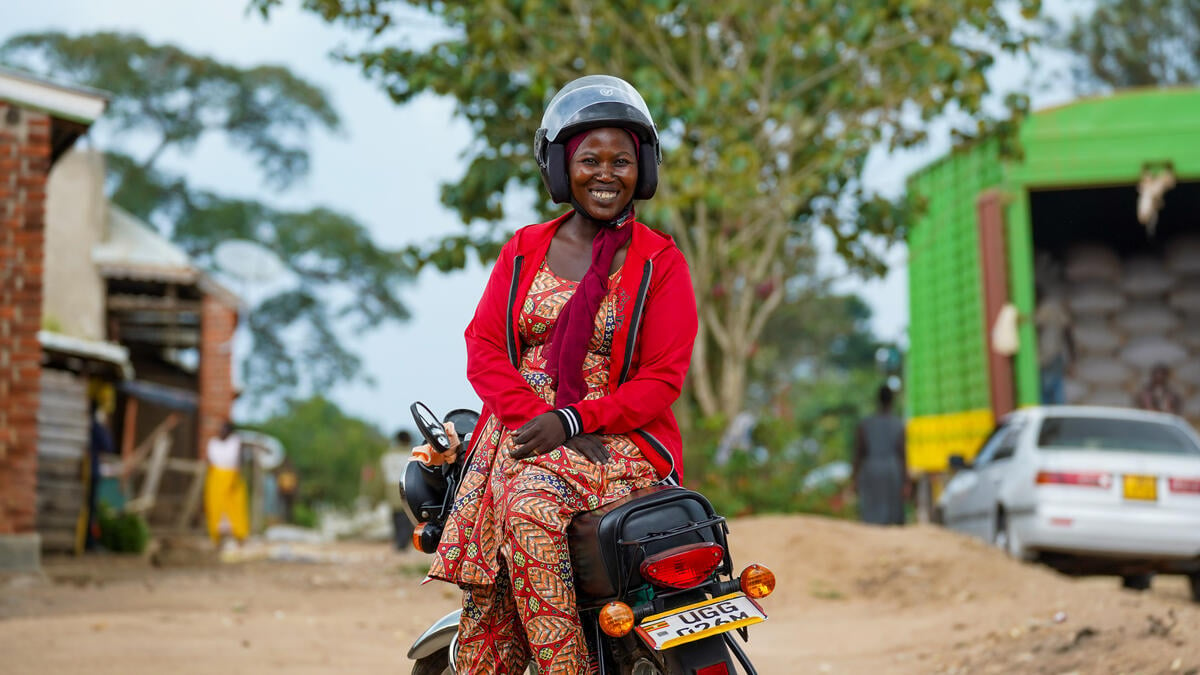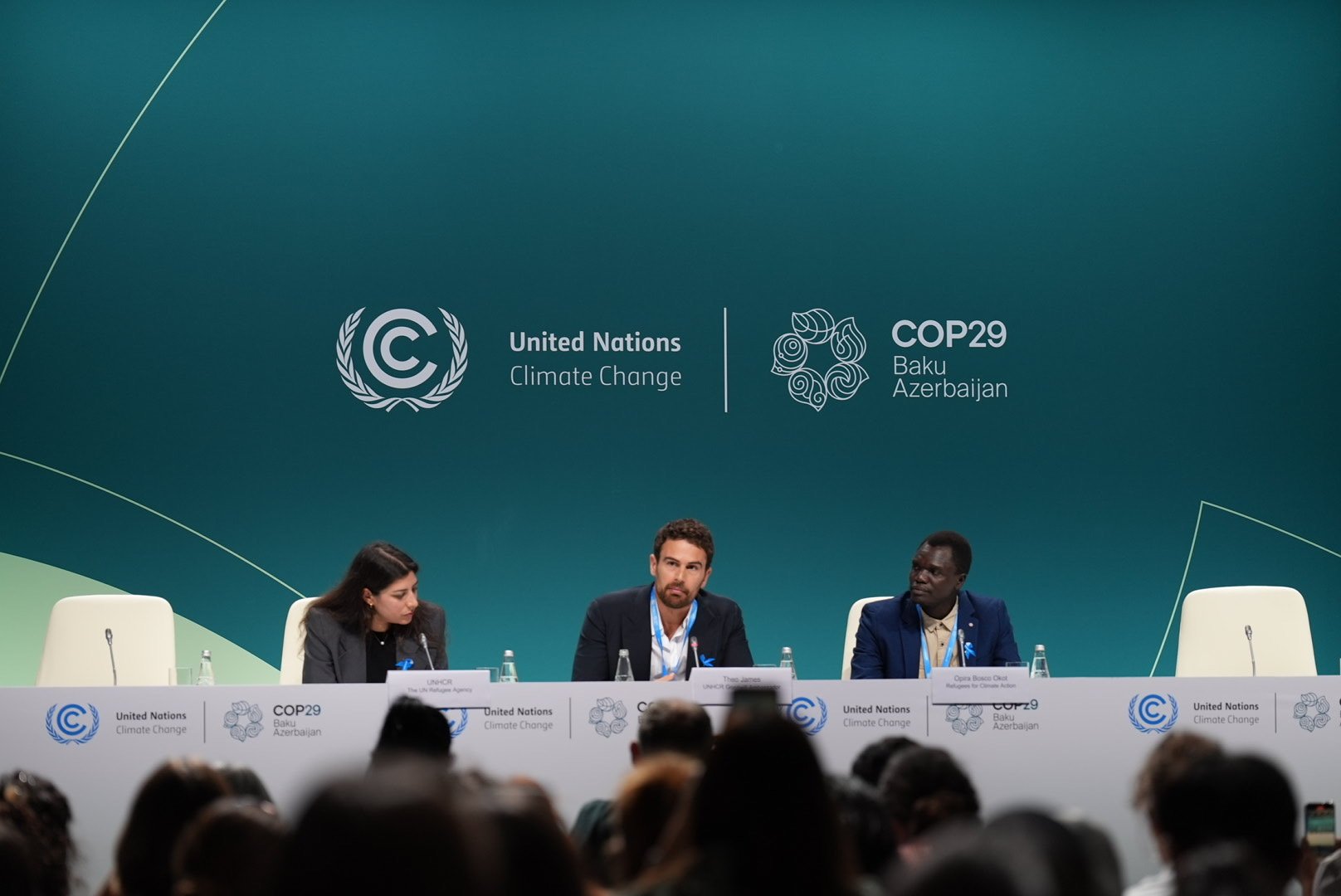UNHCR-Ipsos survey shows enduring public support for refugees, alongside stark variations in attitudes
UNHCR-Ipsos survey shows enduring public support for refugees, alongside stark variations in attitudes

GENEVA – A major survey on attitudes towards refugees across the Global North and South shows that three-quarters of adults continue to believe that those fleeing war or persecution should be able to seek safety in other countries.
The findings of the survey conducted by Ipsos – one of the world's leading market research companies – with UNHCR, the UN Refugee Agency, are released just ahead of World Refugee Day on 20 June. They paint a complex picture of perceptions of refugees, with significant differences in opinion based on the question and the location of those surveyed.
Overall, 73 per cent of people across the 52 countries surveyed agreed that people should be able to take refuge in other countries, including their own. However, support for providing refuge has dampened in a number of countries from the high levels in 2022 in the aftermath of Russia’s full-scale invasion of Ukraine.
Those surveyed in countries with a long tradition of hosting refugees, such as Uganda and Kenya, generally showed higher degrees of optimism about refugee integration and its positive impact.
While attitudes varied, half of those surveyed believe in refugees being able to integrate and – for example – access their full right to education, while nearly as many support their full access to health care and jobs. Around three-quarters expressed support, to a varying degree, for policies that allow refugee families to be reunited in the country of asylum.
Still, some major hosts and Western countries showed less positive sentiment including concerns about refugees' ability to integrate. While a third believe refugees will positively contribute to their country's labour market, economy and culture, another third hold the opposite view. The survey also showed concerns about the impact of refugees on national security and public services, notably in countries with large refugee populations.
"It is essential to listen to and understand public perceptions of refugees – both the positive and the negative, the generosity but also the concerns and fears. This is the best way to address these worries and ensure that those fleeing the world's worst tragedies continue to receive the help and support they deserve. Better understanding must lead to better policies and communication,’’ said Didier Truchot, Chairman and Founder of Ipsos. ‘’This is also a call to action for all of us, including the business community, which can help by employing and training refugees to support their integration into their host country.”
Despite the concerns and scepticism about refugees' impact on host societies, many people are still taking action to support refugees. A third have shown support for refugees, including by donating or through social media. Currently, 75 per cent of refugees live in low- and middle-income countries, and 37 per cent said they believe that international aid for countries hosting refugees is insufficient.
“These days, we hear much about how to keep refugees out – they get blamed by populists for society's ills. But this survey reminds us that there is an enduring groundswell of support for the right to seek safety. That is a heartening sign of hope in a sometimes-dark world,” said Dominique Hyde, UNHCR’s Director of External Relations. “Still, we need to do much more to explain to the sceptics why refugees should be embraced, not ostracized. Erosion of public trust and empathy is a huge barrier to creating a safe and welcoming environment for refugees.”
The results, released on the International Day of Countering Hate Speech as part of UNHCR’s Hope Away from Home campaign, showed traditional media and social media remain trusted sources of information about refugees, indicating the importance of responsible reporting in shaping public perception. In recent years, there has been an increasing trend to target refugees on social media including via dis- and misinformation campaigns.
Overall, there are also differences in attitudes, mainly by age, with younger people tending to be more positive about refugees than older people.
Over 33,000 adults across 52 countries participated in the online survey in April and May, the largest on refugees by Ipsos, which aimed to improve understanding of refugee issues and examine the degree of public support for refugees. More than 120 million people were forcibly displaced globally by May 2024.
Read the results of the survey.
For more information, please contact:
UNHCR:
- Olga Sarrado Mur, [email protected]
Ipsos:
- Caroline Ponsi-Khider, [email protected]
About the survey
Ipsos has conducted a World Refugee Day survey annually since 2017.
These are the results of a 52-country survey conducted by Ipsos on its Global Advisor online platform and, in India, on its IndiaBus platform, between Friday, 19 April and Friday, 10 May, 2024. For this survey, Ipsos interviewed a total of 33,197 adults.
The sample consists of approximately 1,000 individuals each in Australia, Brazil, Canada, France, Germany, United Kingdom, Italy, Japan, New Zealand, Spain, and the U.S., and 500 individuals each in Argentina, Bangladesh, Belgium, Bosnia and Herzegovina, Bulgaria, Chile, Colombia, Denmark, Ecuador, Ethiopia, Finland, Ghana, Hungary, Indonesia, Ireland, Jordan, Kenya, Lebanon, Lithuania, Malaysia, Mexico, Morocco, the Netherlands, Nigeria, Pakistan, Peru, Philippines, Poland, Romania, Saudi Arabia, Singapore, South Africa, South Korea, Spain, Sweden, Switzerland, Thailand, Türkiye, and Uganda. The sample in India consists of approximately 2,200 individuals, of whom approximately 1,800 were interviewed face-to-face and 400 were interviewed online.
Samples in Argentina, Australia, Belgium, Canada, Denmark, France, Germany, United Kingdom, Hungary, Italy, Japan, the Netherlands, New Zealand, Poland, South Korea, Spain, Sweden, Switzerland, and the U.S. can be considered representative of their general adult populations under the age of 75. Samples in Bangladesh, Bosnia and Herzegovina, Brazil, Bulgaria, Chile, Colombia, Ecuador, Egypt, Ethiopia, Finland, Ghana, Greece, Indonesia, Ireland, Jordan, Kenya, Lebanon, Lithuania, Malaysia, Mexico, Morocco, Nigeria, Pakistan, Peru, Philippines, Romania, Saudi Arabia, Singapore, South Africa, Thailand, Türkiye, and Uganda are more urban, more educated, and/or more affluent than the general population. The survey results for these countries should be viewed as reflecting the views of the more “connected” segment of their population.
About UNHCR
UNHCR, the UN Refugee Agency, leads international action to protect people forced to flee their homes because of conflict and persecution. UNHCR delivers life-saving assistance like shelter, food and water, helps to safeguard fundamental human rights, and develops solutions that ensure people have a safe place to call home where they can build a better future. We also work to ensure that stateless people are granted a nationality.
The survey was conducted by Ipsos with UNHCR, the UN Refugee Agency, ahead of World Refugee Day on 20 June as part of UNHCR’s new Hope Away from Home campaign. The campaign calls for renewed solidarity and firm commitments from States to uphold the rights of people seeking safety from war, violence and persecution.
The campaign was launched in 2023 amid record global levels of forced displacement (120 million people by May 2024) and concerns over increasingly restrictive policies and shrinking options for long-term solutions and resettlement in many parts of the world, threatening the fundamental right to seek asylum.
About Ipsos
Ipsos is a global leader in market research. It delivers reliable information and a true understanding of society, markets, and people, making our complex world easier and faster to navigate and inspiring its clients to make smarter decisions. With a strong presence in 90 countries, Ipsos employs more than 18,000 people and conducts research programs in more than 100 countries. Founded in France in 1975, Ipsos is controlled and managed by research professionals.








